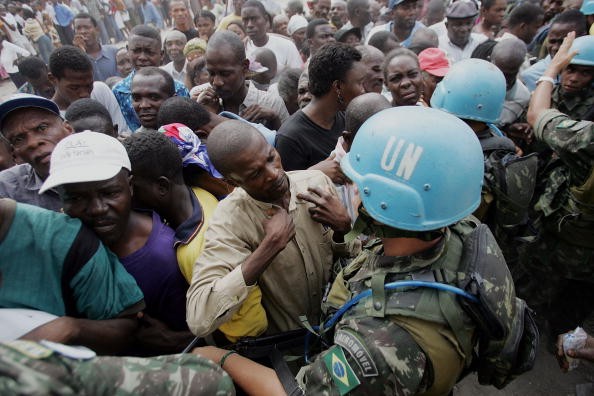China is set to become the second-largest contributor to the United Nations’ peacekeeping costs between 2016 and 2018, just behind the U.S., making up for 10.2 percent of the total, the head of the U.N.’s peacekeeping operations told the press on Sunday.
Hervé Ladsous, U.N. undersecretary-general for peacekeeping operations, said that China is also the largest troop provider of the U.N. Security Council's five permanent members.
"Chinese units are well-equipped and well-trained," Ladsous said, adding that Chinese peacekeepers are prepared for the tasks and disciplined.
According to the U.N., the top three contributors between 2013 and 2015 to its peacekeeping operations were the U.S., Japan (10.83 percent) and France (7.22 percent). China placed sixth with 6.64 percent.
China will increase its contribution to the U.N. peacekeeping operations budget by 10.3 percent, surpassing Japan for the first time, Wang Min, China's deputy permanent representative to the U.N., said in December.
The country will also pay 7.92 percent of the total U.N. regular budget from 2016 to 2018, making it the third-largest contributor among 193 member-states, following the United States and Japan.
China will shoulder its responsibilities as a permanent member of the U.N. Security Council, provided that the membership fee has been calculated in a just, impartial, and reasonable manner, Wang said.
In September, President Xi Jinping pledged to build a standby force of 8,000 peacekeeping troops. As of May 2015, 30,178 Chinese officers and soldiers have been sent to peacekeeping operations across the world, according to a report from the state-owned Global Times.
According to the report, Chinese peacekeepers have renovated and built more than 300 bridges and roads spanning 110,000 kilometers. They have also disarmed 9,400 landmines and explosives, shipped 1.1 million tons of materials, completed 450 patrols and 230 convoys, and treated approximately 149,000 patients.
In the future, the U.N. can work with China on peacekeeper training and bringing in modern equipment to peacekeeping operations, Ladsous said.
However, since Chinese peacekeepers are often assigned to the least developed areas in the country, they regularly face violence. Aside from gang violence, tensions and fighting among refugees from various ethnic groups or families, often involving large numbers of people and weapons, have put Chinese peacekeepers at risk. They likewise face constant lack of food and water, according to several media reports.
But despite these challenges, Chinese peacekeepers have a record of "zero repatriations, zero discipline violations and zero battle casualties," and have received praise from the international community, said Xu Naigang, deputy director of the International Cooperation Department at the Ministry of Public Security.



























